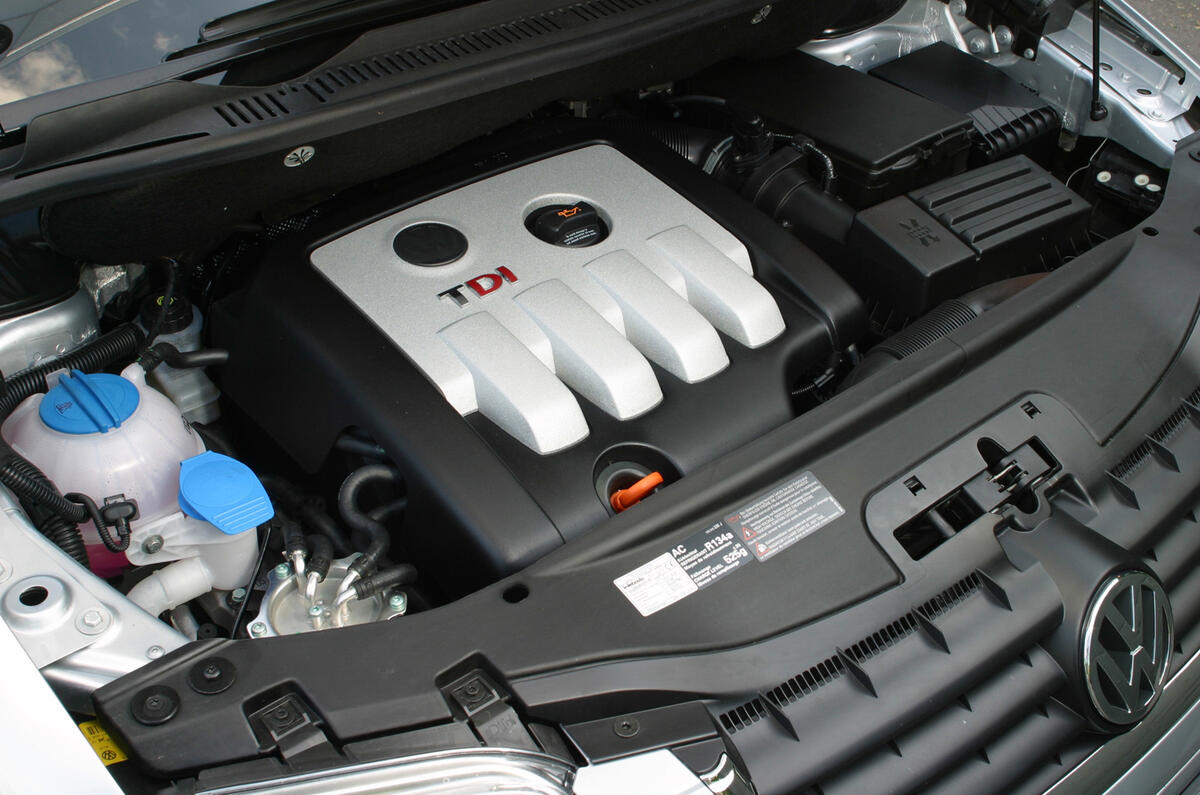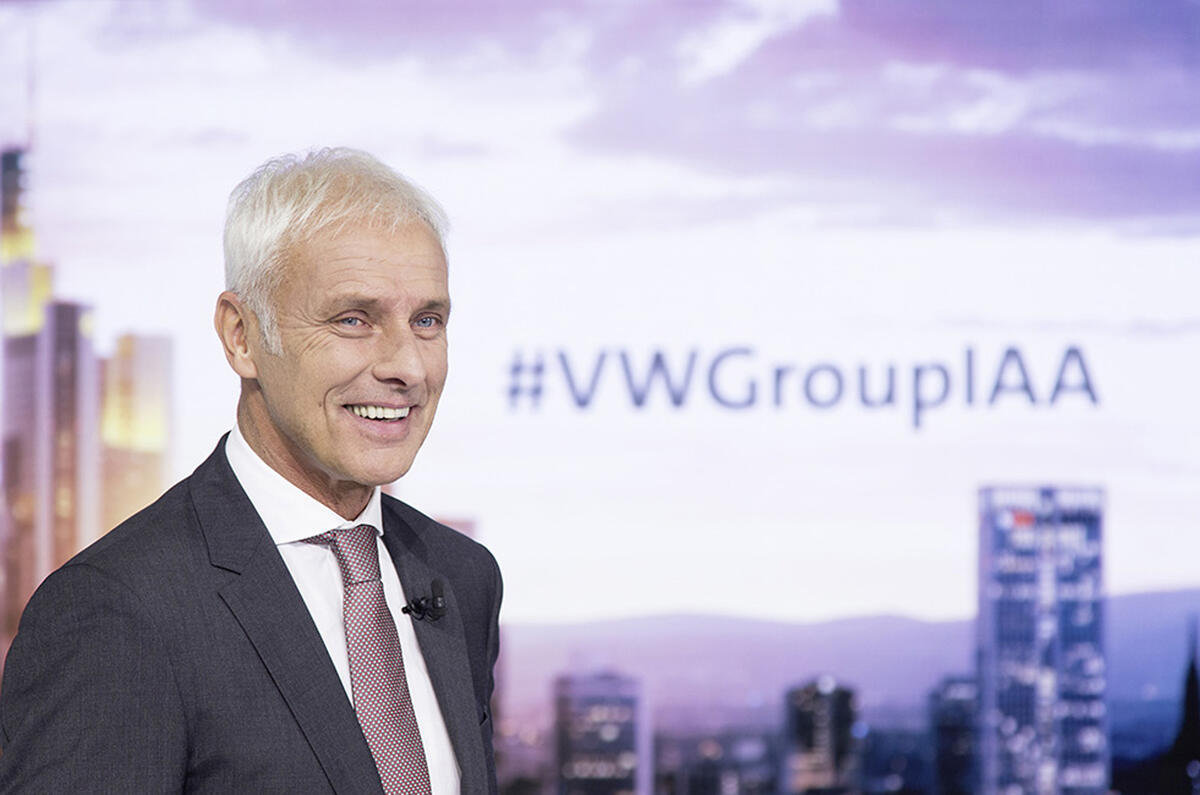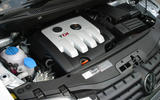Diesel is not dead as a fuel, and it is down to the car industry to change the public’s increasingly poor perception of it, according to Volkswagen Group chairman Matthias Muller.
Speaking on the eve of the Frankfurt motor show where he outlined plans to launch 80 new electrified models across VW’s brands by 2025, Muller stressed that the ongoing sale of conventional petrol and diesel engines was critical to the brand’s success.
“We are in a period of transition, and we must bridge - and fund - that transition by continuing to sell the latest diesel and petrol engines,” said Muller, who outlined a 20 billion euro (£18bn) investment plan into e-mobility. “Today’s engines can contribute to much cleaner air quality, and it is a truth that those profits are what will fund our investments.”
Asked whether public opinion on diesel was now too negative for sales to ever recover - a fact born out by plummeting diesel sales in most countries - Muller said: “I understand why the public opinion is where it is on diesel, but the fact is the latest technologies have a lot to give. It is up to us to persuade the customers and regulators of the benefits; we must earn their trust. But it is never too late to do that.”
Muller also conceded for the first time that the Dieselgate scandal may have been a result of VW’s previous success, saying: “Maybe after 10 to 20 years of continuous success we got complacent, or pursued new goals too enthusiastically.
“We are still embroiled in that, and I cannot see an end, but we must keep working.”
Read more
Autocar survey: diesel sales set to slump due to pollution fears
Volkswagen to offer electrified version of every model by 2030
Volkswagen engineer scheduled to prison for Dieselgate involvement







Join the debate
Add your comment
I agree with what hes saying
I agree with what hes saying anout diesel, but the irony is that its HIS company thats mainly responsible for the public's negativity towards diesels at the mo. As for "maybe we got too complacent" - complacency is one thing, but cheating/lying are ENTIRELY different things - VW didnt get complacent - the plainly lied and cheated.
Trust
None of these Revelations has been provided by VAG. Every bit of progress has been made by independent investigators carrying out their own research and tests.
Diesel can not be resurrected by continuing obfuscation misdirection and lies. Rebuilding Trust starts with truth and transparency. If diesel does suffer a premature death the manufacturers are to blame. The public deserve some respect.
Missing Billions
So the Billions in fines and consumer compensation that flow from Diesel gate are eating into the bottom line at VW and future developments are now more dependent on operating profits. Trust is a frangible thing and persuading punters to pay over the odds for diesel have to be set against the populist impulse to ban the oily smokers from heavily polluted cities. VW are probably least well placed to lead this charge. The Mea Culpa might ring a little truer if the attitude to fiscal relief of customer anxiety was extended to countries like the UK where consumer law and protections are weak. Motoring journalists have also been caught napping. Where are their plans for more incisive reporting on this brave new world of corporate transparency?